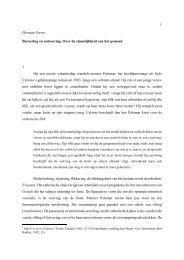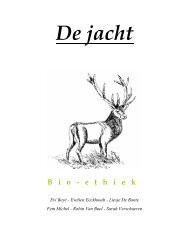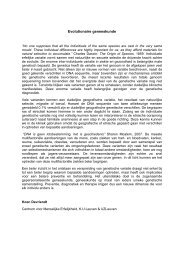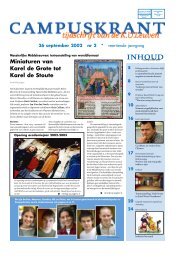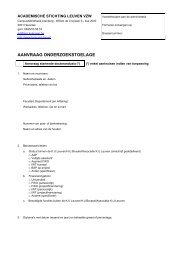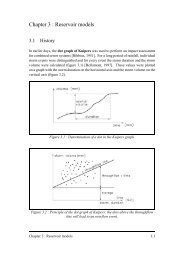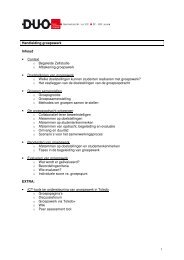EQUALITY GUIdE - KU Leuven
EQUALITY GUIdE - KU Leuven
EQUALITY GUIdE - KU Leuven
Create successful ePaper yourself
Turn your PDF publications into a flip-book with our unique Google optimized e-Paper software.
238 Equality Guide<br />
David Clutterbuck 249 defines mentoring as: “Off-line help by one person to another in<br />
making significant transitions in knowledge, work or thinking.”<br />
Julie Hay 250 identifies the range of activities which may be referred to as mentoring:<br />
! showing people the ropes ! and helping them to climb them;<br />
! passing on knowledge and/or skills, either formally or informally;<br />
! looking after people;<br />
! acting as a sounding board;<br />
! helping people to put learning into practice;<br />
! being a role model;<br />
! being a guide;<br />
! talking to people about their careers;<br />
! coaching.<br />
The definitions of mentoring can roughly be divided into what can be called the ‘US<br />
traditional or godfathering’ and the ‘European or developmental approach’. The former<br />
starts from the assumption that the focus of the relationship is the mentor’s extensive<br />
experience and willingness to exercise power and influence on behalf of the<br />
mentee (typically called a protégé). It can be characterized by long-term relationships<br />
that may involve a degree of mutual dependence. Developmental mentoring, on the<br />
other hand, emphasizes the mentee’s role in managing the relationship, and focuses on<br />
the achievement of personal insight, intellectual challenge and increasing self-reliance.<br />
Mentoring is often confused with coaching, as both development tools are very similar.<br />
As Julie Hay has identified, coaching skills come into the mentoring relationship. The<br />
mentor will listen and give advice and guidance when it’s appropriate. But the mentor<br />
is a ‘senior’ and more experienced in the organization; which is not necessarily the case<br />
for a coach.<br />
According to the historical definition, a mentor is a more experienced person who<br />
shows the ways to a younger person. Mentoring is a tested method in so-called role<br />
model learning. The under-representation of women in higher positions is often linked<br />
to the lack of positive role models.<br />
Coaching, networking, training, it’s all about talent development but how to distinguish<br />
between these methods and, even more important, how to choose one method or the<br />
other? A recent international survey by the ACCA (Association of Chartered Certified<br />
Accountants) examined how companies applied various developmental approaches to<br />
talent management 251 . One of the interesting comparisons was between the use of an<br />
approach and how useful it was regarded to be:<br />
! coaching was used by 70% of respondent companies and was felt to be useful by<br />
60%;<br />
249 Clutterbuck, David (1999). Everyone Needs a Mentor. CIPD, ISBN 0852929048.<br />
250 Hay, Julie (1995). Transformational Mentoring: Creating Developmental Alliances for Changing<br />
Organizational Cultures. McGraw-Hill.<br />
251 Clutterbuck Associates, Electronic newsletter, June 2007.



